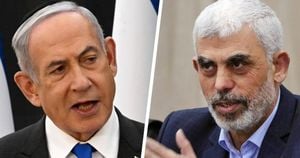President-elect Donald Trump’s selection of former Congresswoman Tulsi Gabbard as his choice for the director of national intelligence has sparked significant debate and scrutiny. Gabbard, who served as the representative for Hawaii from 2013 until 2021 before briefly running for the presidential nomination, has switched her political affiliation from Democrat to Republican. Her new role, if confirmed, would place her at the helm of the nation’s intelligence community during the challenging political climate characterized by accusations of foreign interference.
Critics quickly pointed out Gabbard’s lack of experience with U.S. intelligence agencies and her history of voicing controversial opinions—particularly those sympathetic to Russian perspectives. This combination, they argue, should make her candidacy highly questionable. Gabbard has been vocal about what she perceives as the failures of U.S. foreign policy, and her past comments have raised eyebrows, leading to allegations of her echoing Kremlin propaganda.
At the onset of the conflict between Russia and Ukraine, Gabbard attributed blame to the Biden administration and NATO, asserting they provoked Russia's aggression by disregarding its “legitimate security concerns” surrounding Ukraine's potential NATO membership. This argument has struck many as dismissive of Russian aggression, with critics claiming it undermines the complexity of the situation.
Supporters of Gabbard argue her experience as a combat veteran and her foreign policy perspectives could bring fresh insights to intelligence operations. Yet, her ties to the Russian government, evident through her supportive statements toward the nation, have raised serious concerns among both lawmakers and the public. Some have labeled her comments as dangerously naive or even as support for hostile foreign forces.
This tension surrounding Gabbard’s candidacy has gained attention not only for the potential impact on U.S. intelligence operations but also because of the broader implications it might have for the upcoming national elections. If confirmed, Gabbard could influence American foreign policy and intelligence gathering, raising fears among some members of Congress worried about U.S. security.
While the official confirmation process continues, the political discourse surrounding Gabbard's nomination reveals deep divisions within the Republican Party and among conservative commentators. Some view her as representative of Trump’s populist shift, where traditional alliances and viewpoints are challenged. This dynamic could shift power balances within the party, especially as Trump’s administration prepares for its return alongside contentious issues around national security.
Notably, the political ramifications extend beyond mere party lines. The atmosphere filled with suspicions and criticisms also reflects the fraught relationship between U.S. intelligence and the Russian state apparatus. Gabbard's selection could validate those who argue for increased scrutiny of figures within the government who seem sympathetic to foreign adversaries.
Constitutionally, the Senate must approve any cabinet nominations, and Gabbard's nomination may face additional obstacles due to her controversial stances and comments. Political analysts predict there may be significant opposition from Democrats, but also from some Republicans who are wary of Gabbard’s past and performance.
During her tenure as a Congresswoman, Gabbard did not shy away from unpopular positions among her peers. She has been associated with anti-war movements and attracted criticism even from those within her party for her positions on issues such as Syria and military intervention.
Looking forward, the upcoming confirmation hearings promise to be highly contentious, as both supporters and opponents of Gabbard weigh the potential influence she may have on national security and intelligence priorities. The current state of U.S.-Russia relations, characterized by mutual suspicion and geopolitical rivalry, adds another layer of complexity to her nomination.
Gabbard’s supporters hope her practical, albeit unconventional, approach could help bridge divides within intelligence discussions. Conversely, her detractors fear her ascent could compromise U.S. security interests at times when vigilance is most needed. The contrasting views encapsulate the divided state of U.S. politics today as the appointment looms on the horizon.
Overall, the ramifications of Gabbard’s potential confirmation extend beyond her personal narrative and could pivot discussions around national intelligence and foreign policy for years to come. President Biden’s administration and the intelligence community will be watching closely, as Gabbard may usher in significant changes should she obtain the position.



